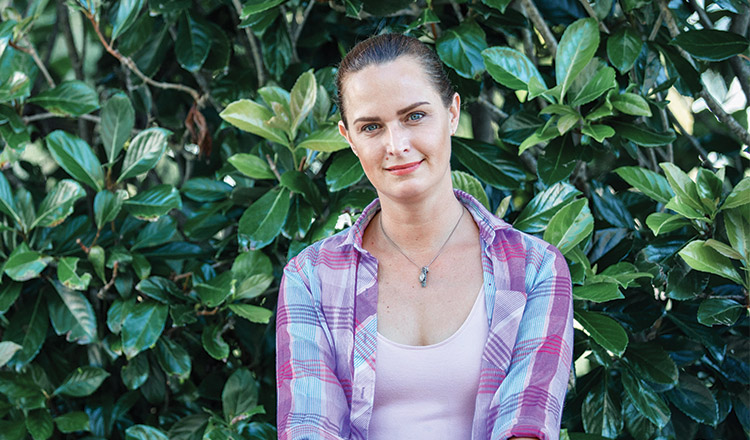As a poor kid growing up around depression and alcoholism, Molly (Barger) Steinwald (MS S’04) sought solace outside. “We lived in New Hampshire, but I didn’t go skiing or anything,” she says. “I spent a lot of time observing small-scale, nearby nature, and I was always amazed by what you could see on the sidewalk.”
Steinwald was on the receiving end of environmental outreach that made her feel guilty — “the rainforests are burning down, people are ruining the environment, that sort of thing”— and began to wonder whether there wasn’t a better way to connect humans and the environment. “As a child dealing with trauma, all that did was reinforce the notion that there wasn’t any hope,” she says.
Luckily, Steinwald had mentors who gave her reason to think otherwise. The first was a high school science teacher who inspired her to study biology at the University of Dallas. There, a professor encouraged Steinwald to apply to Purdue, where she went on to get her master’s in ecology.
I discovered that striking imagery could change the way people interact with the world.
After teaching for three years at a small liberal arts college, Steinwald decided to go back to school for a biology doctorate at Miami University, where she began teaching graduate courses in conjunction with the Cincinnati Zoo. “I realized that there was a whole world outside of the university — not just zoos but also museums, botanic gardens, and more,” she says. “And I realized that I was depressed being in a lab.”
To reconnect with the outdoors, Steinwald started taking pictures of nature on her way from her car to the laboratory. A friend suggested she sell them on Etsy, and soon Steinwald was exhibiting her work around the country. “I discovered that striking imagery could change the way people interact with the world,” she says. The head of the zoology program told her to quit her doctorate program and become a nature photographer.
Steinwald did quit — to become the director of science education and research at the Phipps Conservatory and Botanical Garden in Pittsburgh. There, she spent four years overseeing youth education, community outreach, and teacher professional development.
Her next stint was as director of the Environmental Learning Center in Vero Beach, Florida. “I was really interested in the potential this nature center had for helping people in a zip code that has $20 million homes but also houses with dirt floors,” she says. In the four years she was there, Steinwald developed strong relationships with senior-care centers, created a paid internship for low-income students, and “came up with a lot of really novel ways for getting disparate people to learn about science in a way that’s healing and joyful.”
Recently, Steinwald was inspired to establish a nonprofit, the Human Nature Foundation. While still in its infancy, she hopes the organization will provide education and social services and support environmental sustainability. “It’s something I’ve been thinking about for years — our mission is to heal the human spirit, home, and habitat,” she says.
“There’s this quote from poet Gary Sanders: ‘Nature is not a place you visit. It is home.’ That captures what I’ve been trying to say for forever.”

